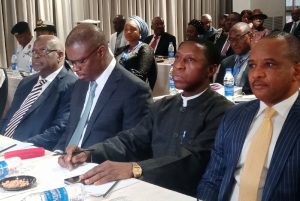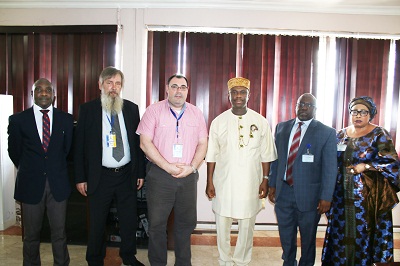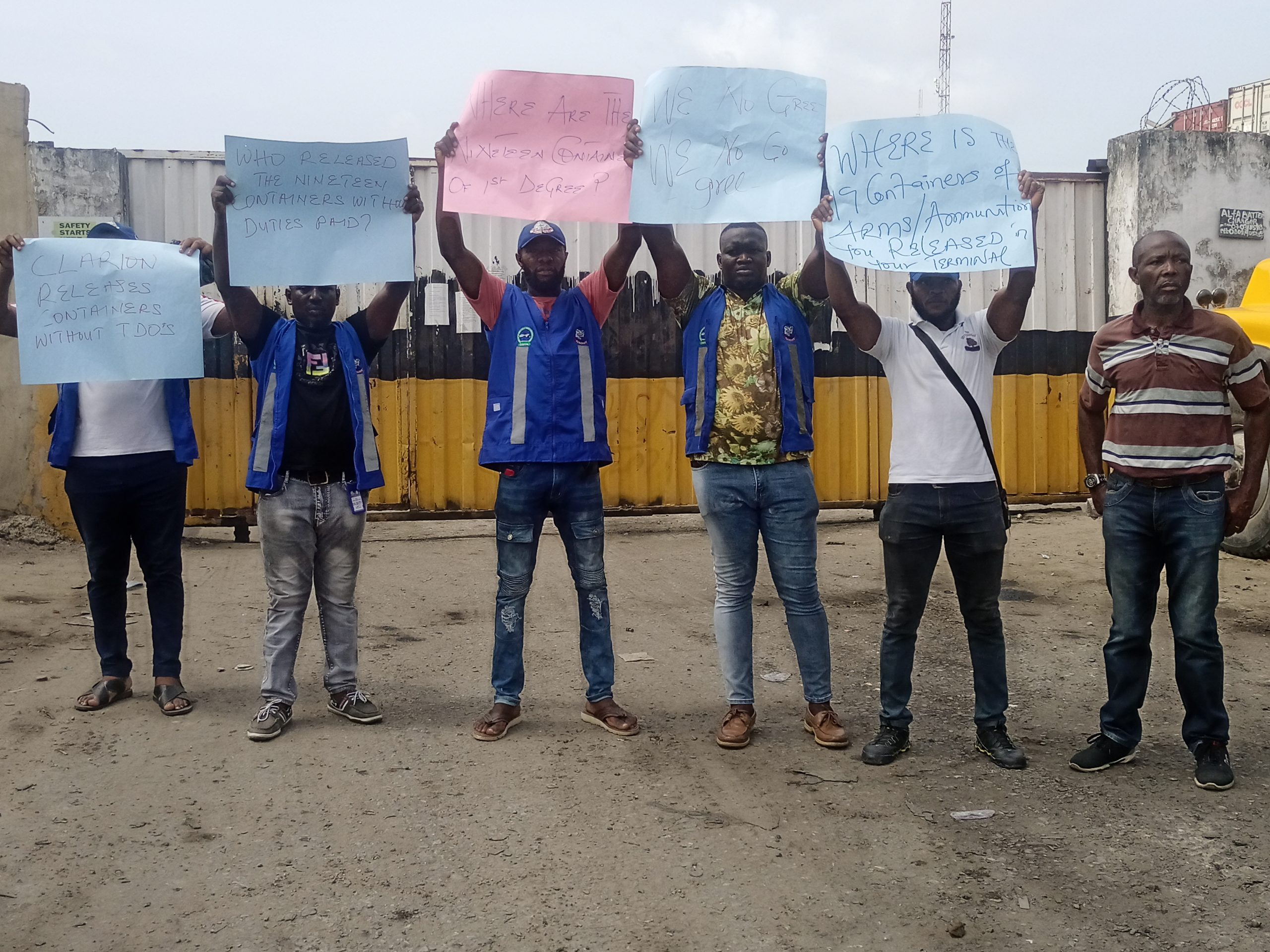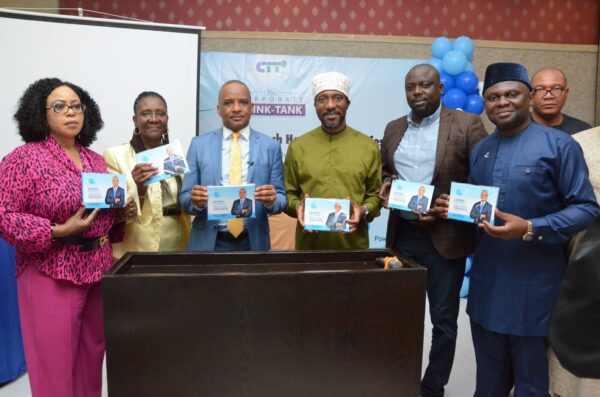NIMASA, NIALS Sensitize Judges On Anti-Piracy Law

By Kenneth Jukpor
As part of efforts to get Nigerian judges up to speed on the Suppression of Piracy and Other Maritime Offences (SPOMO Act), Nigerian Maritime Administation and Safety Agency (NIMASA) and the Nigerian Institute of Advanced Legal Studies (NIALS) has dedicated this year’s Admiralty Seminar for judges to new the anti-piracy law.
The Director General of NIMASA, Dr. Dakuku Peterside revealed this yesterday during the opening ceremony of the 3-day seminar in Lagos, even as expressed worry on increasing acts of piracy and other crimes on Nigerian waters.
Speaking at the event, Dr. Dakuku revealed that the initial target for the seminar were judges of the Federal High Court in view of the exclusive jurisdiction of the Federal High Court under Section 251 (l) (g) of the Constitution of the Federal Republic of Nigeria I999 (as amended), over Admiralty matters, however, he noted that the scope was subsequently expanded to include judges of the State High Court of the littoral States and later Justices of the Court of Appeal, mindful also of their strategic roles in the dispensation of justice.
According to the NIMASA Director General, since its inception the annual seminar afforded a unique opportunity for the judiciary and the agency to dialogue on issues of mutual importance to both sectors and the country in general.
“One of the key deliverables has been the sensitization of judges on contemporary maritime law issues both within and outside the Nigerian jurisdiction considering the multi-jurisdictional nature of shipping”, Dakuku said.
The NIMASA boss also observed that the scope of this year’s participation was expanded to include law enforcement agencies, in view of the choice of the theme: “Suppression Of Piracy and Other Maritime Offences (SPOMO) ACT, 2019: Key To Accelerating and Achieving Safe and Secure Shipping in Nigeria”.
He described the SPOMO Act as a robust and detailed framework for the criminalization and punishment of piracy and other maritime crimes in Nigeria and the Gulf of Guinea, as the region recently became the epicentre of maritime security discussions globally.
He also expressed gratitude to the Nigerian Judicial Institute (NJI) for approving the attendance of the participating branches of the judiciary at the seminar and the Director General of NIALS and his team for collaborating with NIMASA to put together the event.
Meanwhile, the Director General, NIALS, Prof. Mohammed Ladan noted that the choice of the theme was necessitated by the arrival of the first stand-alone Anti-Piracy and maritime crimes law in the Gulf of Guinea aimed at stemming the tides of acts of sea piracy, armed robbery and other challenges of maritime safety and security that hamper sustainable economic growth and development of all the littoral states in the Gulf of Guinea.
“A 2018 Maritime Crime report released as at May 2019, shows that Nigeria, with a coastline of about 853km, has been tagged as a privacy hotspot, by the International Maritime Bureau because in the first Quarter of 2018, Nigeria alone accounts for 22 out of 66 piracy and armed robbery at sea incidents and 8 of l 1 vessels fired upon globally. In 2019, IMF (Q3) report revealed that Lagos sea port recorded 11 of such incidents making it the highest globally.”
“The Gulf of Guinea is home to Nigeria, the largest economy and the most populous nation in Africa, whose economy generates more than 70% of the seaborne trade in west Arica and Gulf of Guinea because about 90% of global trade is carried out by the international shipping industry for import/export of goods” Ladan said.
He also expressed optimism that the strategic maritime law seminar would enhance the capacity of Justices to enable them play their roles in ensuring safe and secure seas and oceans to enhance maritime businesses, exploitation of natural resources, promotion of trade and investments, tourism, marine science, fisheries, among others.
The ongoing 9th Strategic Admiralty Law Seminar for Judges is being organized by the NIMASA in collaboration with the NIALS, instituted by NIMASA in 2009, for judges in line with the agency’s mandate to promote the development of shipping and capacity building in the maritime sector.








